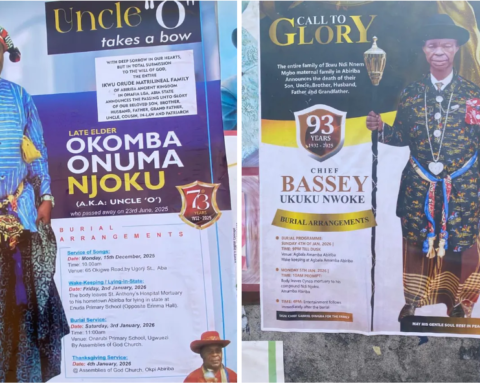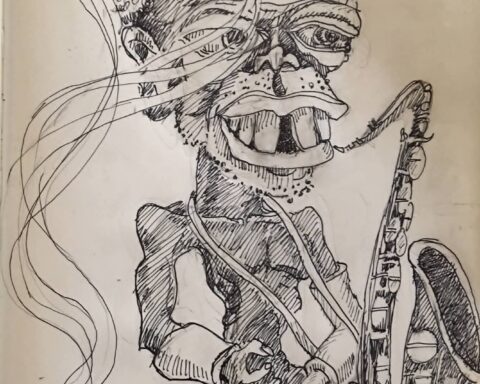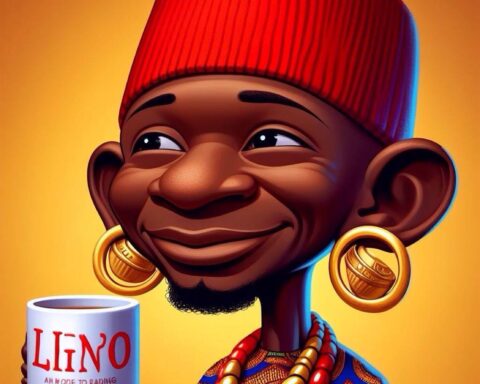By Bolaji O. Akinyemi
Since Nigeria’s independence in 1960, our national journey has been marked by one recurring pattern: great expectations crushed by poor delivery. At every pivotal moment of transition—military or civilian—the country has been promised redemption. And yet, we remain tethered to the same circle of betrayal. It is not for lack of desire by the people, but the failure of structure and the triumph of deception over discernment.
From one coup speech to another, soldiers wrapped their ambition in noble language, each promising to “rescue Nigeria from corruption, decay, and misrule.” Civilians who returned after military rule adopted the same script. We will be better than those before us, they said. But each regime, intoxicated by power, lost focus and failed to deliver the dividends of democracy.
*History is replete with examples.*
In 1979, President Shehu Shagari promised national unity and economic revival, yet his administration was soon overwhelmed by widespread corruption and a crashing economy.
In 1999, President Olusegun Obasanjo returned as a civilian to “heal the wounds of military dictatorship.” Yet his administration soon birthed new democratic authoritarianism, constitutional manipulation, and elite capture.
Goodluck Jonathan whose rise was adorned with the metaphoric grace of “no shoes” and a humble background, promised transformation—but presided over oil theft at an industrial scale, and watched Boko Haram turn parts of the country into a wasteland.
Then came Muhammadu Buhari, the myth of a messiah hardened by three failed attempts before 2015. Nigerians finally handed him the reins with the hope that integrity, discipline, and experience would change the nation’s fortunes. But Buhari’s eight years became a national nightmare. His promise of “change” delivered inflation, debt, insecurity, and economic despair. In the end, the man once seen as Nigeria’s last hope became its worst president.
Now enters President Asiwaju Bola Ahmed Tinubu, presented as a political offspring of the Awolowo school of strategic vision. He reinvented the hope mantra of Abiola’s into “Renewed Hope”, and picked the Muslim/Muslim formula, in the same pattern; South West/ North East. His ascendancy brought hope to many, especially from the Southwest, who believed a tested administrator had finally arrived at the national stage. But in just two years, the vision is blurring. Tinubu’s policies have widened poverty, his appointments have stoked ethnic tensions, and his party seems more invested in patronage than progress.
It is a familiar slope.
As we walk the slippery ground to 2027, the danger is clear: Nigeria may once again enthrone a leader based on personality rather than principle; on charisma rather than character.
This is the heart of our problem.
*The Structural Trap*
Every administration enters office with a burden of hope—but also a guarantee of failure because our political structure does not incentivize excellence or accountability. Leadership is often reduced to a winner-takes-all spoils system, powered by a godfather-driven, rent-seeking elite. Institutions are weak, oversight is compromised, and the Constitution we claim to operate from—Decree 24 of 1999—was not birthed in democratic legitimacy.
The centralisation of power in Abuja has made governance a game of proximity rather than productivity. States are mere administrative outlets of the federal government, not autonomous engines of development. We have a police force that answers more to politicians than to citizens. Our electoral system, while improved, still rewards manipulation over merit. And our judiciary, at critical times, has struggled to command moral authority.
Until we fix these structural deformities, even the best of men will fall short.
Personally, my expectation of Mr President was to dismantle the road block to progress that our constitution and federation constitute in his four years and ease out to give way to a new leader. But that opportunity is scuttled.
*The Myth of Charisma*
Nigeria has been repeatedly seduced by eloquence—by the poetry of campaign speeches and the aesthetics of oratory. But history has taught us that charisma is not competence. Speeches do not build roads. Gestures do not revive agriculture. Campaign jingles do not reform education.
Charisma can win elections, but character sustains governance.
In 2027, Nigerians must go beyond the fire of campaign promises to examine the fireproof of personal integrity. Who is the man behind the mic? What are his values? What does he do when no one is watching? What battles has he fought for others when there was nothing in it for himself?
A charismatic leader can bring the crowd. But a man of character will build a country.
*Character over Charisma: A Guiding Framework*
As we approach 2027, we must create a new metric of leadership evaluation. Nigerians must develop a civic literacy that can interrogate character, not just applaud charisma.
Here is a simple framework:
1. *Track Record over Rhetoric:*
What has this individual done with the little power previously entrusted to him? Did he empower others? Did he abuse that trust? Nigerians must demand audited legacies, not airbrushed CVs.
2. *Personal Sacrifice over Public Show:*
Leadership must involve sacrifice. Has this person sacrificed personal gain for public good before? Or has he always thrived in circles of convenience and comfort?
3. *Moral Courage over Political Calculation:*
When it was dangerous to speak truth, did he speak? Or did he wait until it was safe? Character is often defined by what you do under pressure.
4. *Vision over Volume:*
Can he articulate a clear roadmap for economic, educational, and security reform—or is he simply loud and lyrical with empty buzzwords?
5. *Inclusion over Insularity:*
Nigeria’s next leader must be a builder of bridges—not walls. We must avoid anyone whose politics has been consistently ethnic, regional, or religious in tone.
6. *Humility over Hubris:*
Power corrupts. But humility inoculates. Is this someone who can say “I was wrong”? Or does he surround himself with praise singers and attack dogs?
*What Structural Changes Do We Need Before 2027?*
No leader, no matter how noble, can deliver in a dysfunctional structure. As 2027 approaches, Nigerians must demand structural reforms, including:
*A New Constitution:*
One birthed from the people, not the military. A document that reflects true federalism, giving states power over policing, resource management, and education.
*Electoral System Reform:*
Legalize independent candidacy fully. Digitize party primaries. Remove INEC’s political capture by enshrining judicial neutrality in election disputes.
*Police and Security Sector Reform:*
Decentralize policing. Train community-based security forces. Integrate technology and intelligence sharing.
*Judicial Independence:*
Reform NJC appointments. Empower local and appellate courts with greater independence and better funding.
*Merit-based Appointments:*
Enact a performance audit law for public officeholders. Disqualify candidates with proven corruption records, regardless of technical acquittals.
*Public Accountability Tools:*
Create legally binding mechanisms for citizens’ referendums, recall votes, and social contract tracking platforms.
*Conclusion:* A New Kind of Leader for a New Nigeria
As 2027 draws near, we must stop romanticizing leadership and start engineering governance. The next leader must be a disappointment to the past—someone who breaks from the traditions of deceit, of mediocrity, of divisive identity politics.
We must stop choosing leaders based on whom we like, and start choosing based on what the nation needs. Nigeria does not need another speaker. Nigeria needs a builder, a restorer, and a servant.
We are walking a slippery path, but we do not have to fall again. This time, let us walk with our eyes open, our minds sharp, and our values firm.
The future of this country is not in the hands of the next politician. It is in the hands of the next voter.
And if we choose right, we may finally hear history say, “This is the president Nigeria needed—and deserved.”
Bolaji O. Akinyemi, Apostle and Nation-Builder
Public Affairs Analyst & Political Communicator of note.
Follow us on all social media platforms @dailyquery for news and analyses around the globe.



























